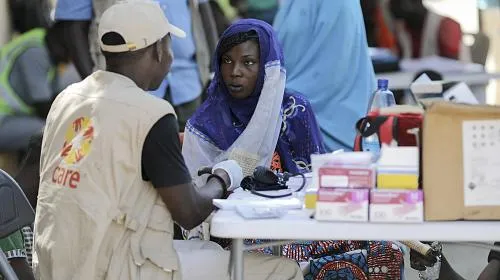This Sunday, 19th August, the global aid community marks World Humanitarian Day.
United Nations Secretary General António Guterres stated that the purpose of World Humanitarian Day is to “pay tribute to the government employees, members of civil society and representatives of international organizations and agencies who risk their lives to provide humanitarian aid and protection”’ The day will be marked by international organizations at headquarters of INGOs and by donor governments in capitals around the world.
Respect for the neutrality of humanitarian workers is clearly deteriorating, which makes this a particularly sad day for all of us. In 2017, 313 aid worker deaths were reported as a result of violent action. 154 of these individuals worked for local or national organizations; when local staff working for international organizations are considered, this figure rises even higher[i]. The shrinking space that humanitarian workers are facing is a reflection of a negative trend that is a concern for the aid community, civil society, and all those who play a critical role in ensuring rights to humanitarian assistance and protection are upheld around the world, so that no one is left behind in humanitarian response.
We must remember that the increased focus on empowering locally led humanitarian response comes with an increased responsibility to ensure the protection of local actors. Our efforts to make local civil society more prominent in humanitarian programming must recognize the risks to safety and security that those same local actors bear.
We, signatories to the Charter for Change aid localization movement, use this opportunity to:
- Call upon all parties to conflicts to meet their obligations under international humanitarian law and ensure safe access to people in need of humanitarian assistance and protection, for all humanitarian and civil society personnel;
- Appeal for continuous effort to strengthen, support and enforce all measures in relation to the protection of humanitarian and civil society actors;
- Urge host governments to do more to guarantee that individuals or groups who attack or intimidate humanitarian actors are held to account for their actions;
- Appeal to donor governments to commit more resources to build the capacities of local and national actors who operate in high-risk and hostile environments.
- We hope that the day will soon come, when there is no longer a need to commemorate the sacrifice of those who lose their lives in the delivery of humanitarian assistance.
Signed: The Signatories to the Charter for Change
16 August, 2018
[i] The Aid Worker Security Database, 2017 statistics: https://aidworkersecurity.org/incidents/search?start=2017&detail=1

